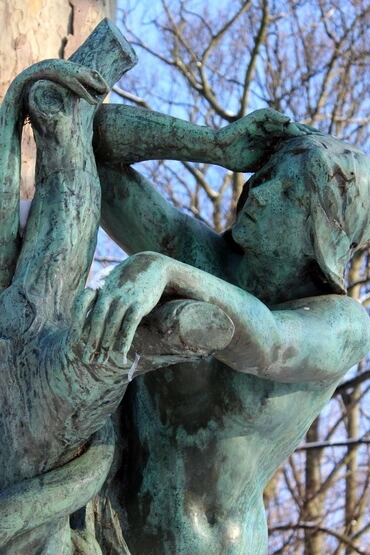Explanation of Genesis 3:1
Napsal(a) Brian David

Serpents represent what we know from our bodily senses, and the reasoning based on our senses. Since the people of the Most Ancient Church had become more external, they were susceptible to the lure of trusting their senses more than they trusted the leading of the Lord. That was particularly true for the sense of self the people had been given, which is represented by the woman. Eating of the trees in the garden represented taking in desires for good and true ideas from the knowledge granted them by the Lord.
So here, for the first time, we see people, from their own senses, actually questioning the Lord. From their senses they wished to explore the knowledge represented by fruit of the garden, but wondered why they were denied the tree of knowledge.
(Odkazy: Arcana Coelestia 194, 195, 196, 197)
Gods

The Lord is called "Jehovah" in the Bible when the text is referring to his essence, which is love itself. He is called "God" when the text is referring to the expression of that love -- which is called Divine Truth. References to other gods, both positive and negative, reflect that meaning. In positive cases -- such as when angels and people are called gods, or when the Lord is referred to as the God of gods -- those gods represent true ideas that come to us from the Lord. In negative cases -- such as when the people of Israel repeatedly adopt the gods of their neighbors -- those gods represent false and twisted thinking that attacks what is good and true.






